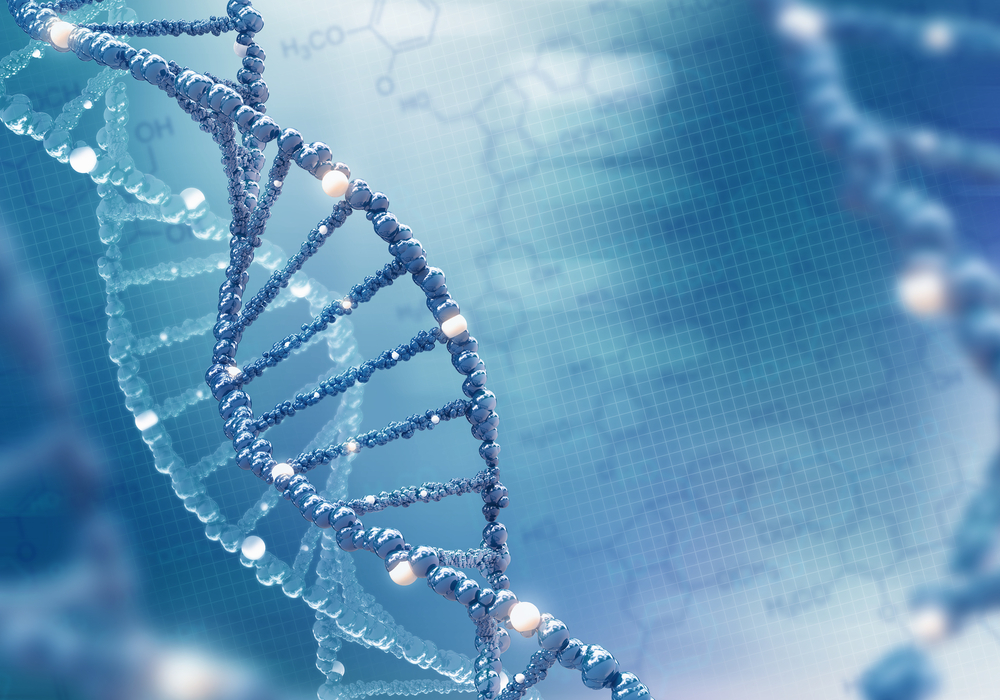Two Missense CD46 Mutations May Lead to Pregnancy-associated aHUS, Case Report Suggests
Written by |

Mutations in the CD46 gene — a regulator of the complement system — may lead to pregnancy-associated atypical hemolytic uremic syndrome (aHUS), according to a case study.
These findings may help to identify women at risk of developing the condition.
The case report, “Genetic and functional analysis of two missense mutations in CD46 predispose to postpartum atypical hemolytic uremic syndrome,” was published in the journal Clinica Chimica Acta.
aHUS is characterized by the destruction of red blood cells, low levels of platelets, and the formation of blood clots in small blood vessels that can lead to kidney failure. About 10%–20% of aHUS diagnoses are associated with pregnancy, usually postpartum and after pregnancy complications.
The condition results from an abnormal activation of the complement system, a set of more than 30 blood proteins that contribute to the body’s natural immune defenses. More than half of the cases of aHUS and pregnancy-associated aHUS are caused by mutations in complement system-related genes.
The CD46 gene contains instructions to produce the cell-membrane CD46 protein, an important regulator of the complement system. It prevents complement-mediated damage by interacting with complement factor I to jointly bind to C3b/C4b complement proteins, leading to their degradation.
While CD46 mutations have been associated with aHUS and pregnancy-associated aHUS, reports of such associations are limited.
In the study, researchers in China reported the case of a 21-year-old woman with pregnancy-associated aHUS who carried two CD46 mutations, which in combination were found to be predisposing factors for the disease.
The woman was admitted to the hospital complaining of nausea and vomiting nine days after giving birth to a normal baby girl through cesarean (due to high blood pressure).
Her clinical history included three infection-associated episodes of recurrent red blood cell destruction, low platelet levels, and/or high levels of proteins in the urine (a marker of kidney dysfunction) during her childhood.
A detailed evaluation showed that she had low platelet levels, anemia, several indicators of blood cell destruction but no immune response against red blood cells, and severe kidney damage, all consistent with a pregnancy-associated aHUS diagnosis.
The disease was successfully resolved in one month with plasma exchange, hemodialysis, and steroid therapy, and the patient continued to show no signs of disease relapse during 18 months of follow-up.
Genetic analysis of blood samples from the patient and four generations of her family revealed that she had two CD46 mutations: a previously reported mutation inherited from her mother — p.T98I — and a new mutation inherited from her father — p.G135R.
The maternal mutation was also detected in her child (making a total of three family members carrying the mutation), while the paternal mutation was also present in four other relatives (total of six carriers in the family). The patient was the only family member carrying both mutations, whose effects were unknown.
Further studies on the effects of each mutation showed that both resulted in changes in CD46’s structure, leading to reduced CD46 levels at the surface of the woman’s kidney cells (which also showed deposits of C3 protein).
These effects were more pronounced with the paternal mutation, which significantly impaired CD46’s correct folding and transport to the cell membrane, where it appeared 50% reduced. Additional analyses highlighted that the maternal mutation did not significantly alter the functional activity of CD46.
“The obvious deficiency of CD46 could be seen in the [kidney] tissues of our case, which might indicate that our patient [has no protection] against C3 activation in [kidney cells] and have kidney damage in each attack of aHUS,” the researchers wrote.
These findings, along with the fact that the patient was the only family member showing symptoms of any form of aHUS, suggested that “these two mutations jointly led to abnormality of complement system and thus contributed to the disease progression,” they said.
The team noted that not only pregnancy itself can trigger excessive complement activation and increase the risk of kidney damage, but also cesarean section was recently proposed as a risk factor for pregnancy-associated aHUS.
Therefore, the researchers hypothesized that these factors could have been “the dangerous triggers of postpartum-aHUS” in this patient, resulting in more serious kidney damage than from her childhood infections.
“Our findings delineate the important role of CD46 in the rare disease of postpartum-aHUS and the four-generation pedigree study uncovered the reason why only one patient suffered from postpartum-aHUS in this family,” the researchers wrote.




